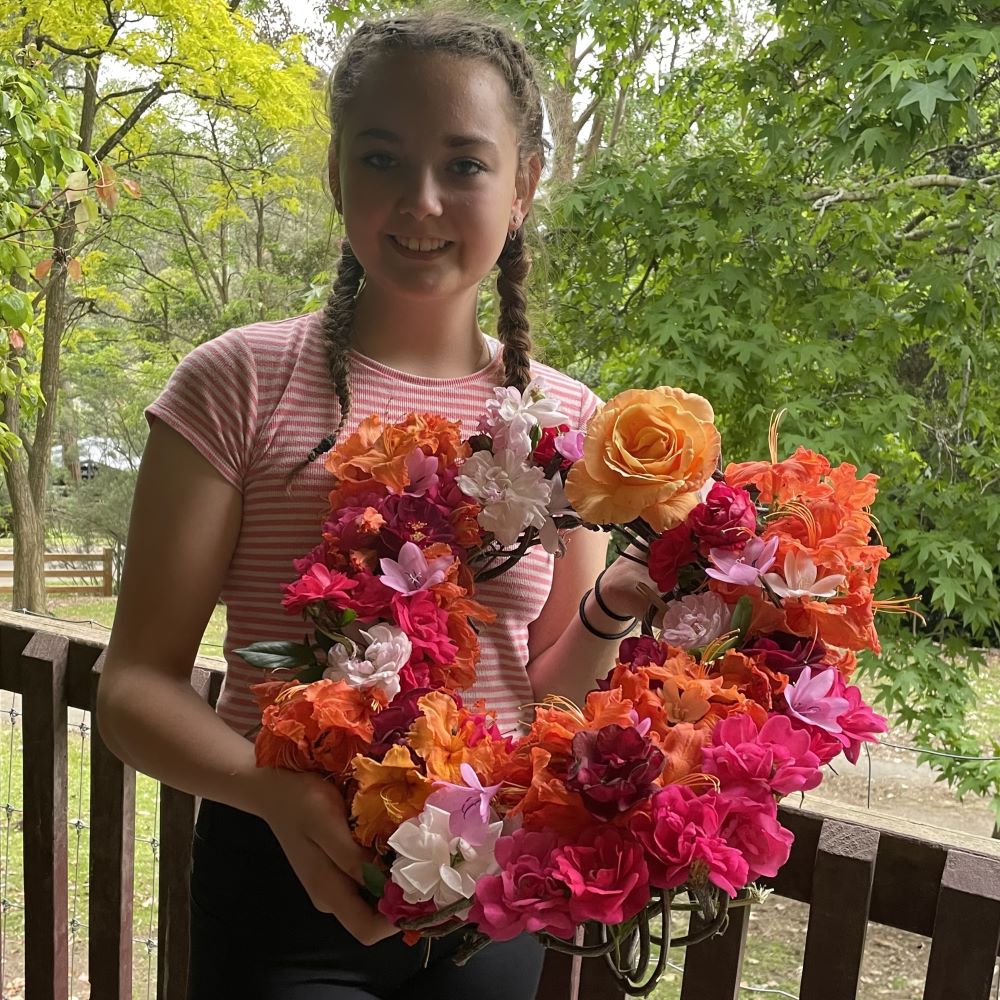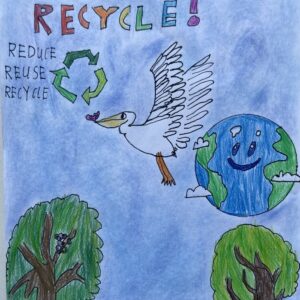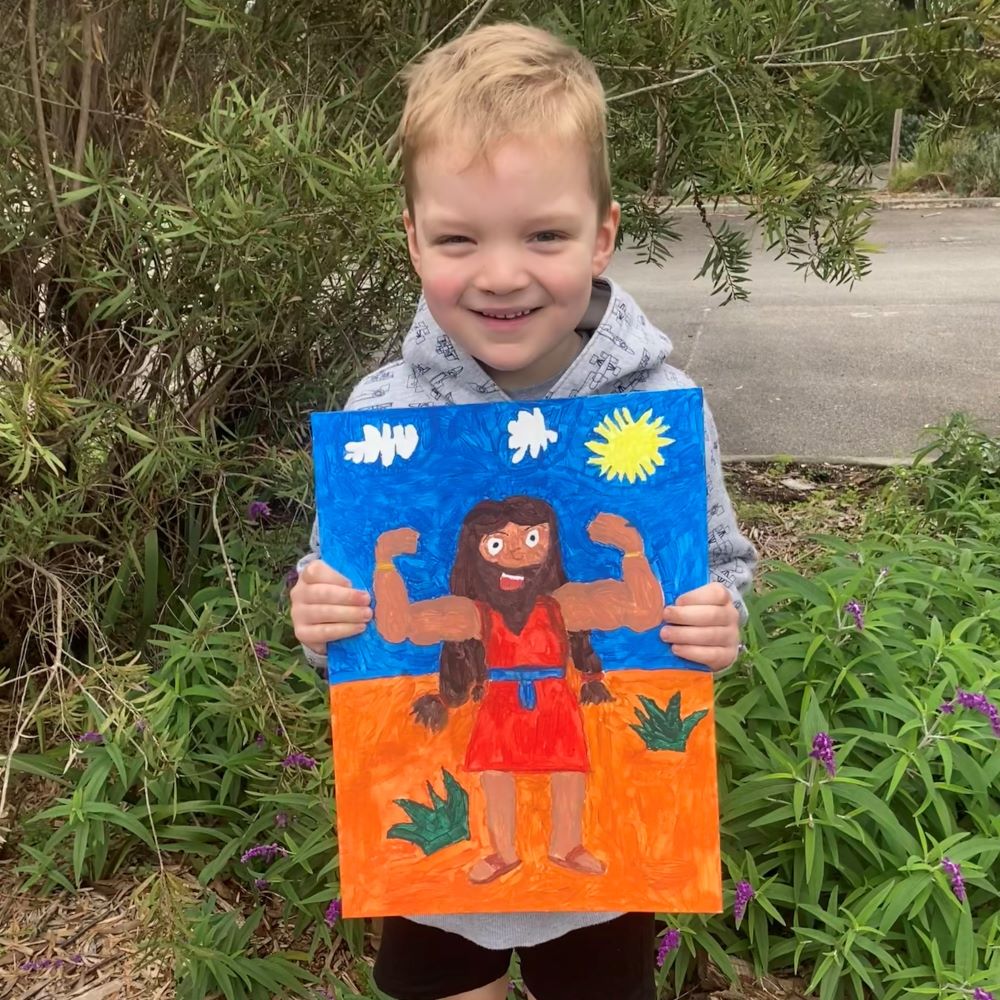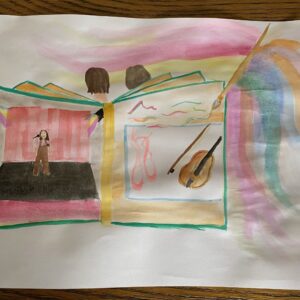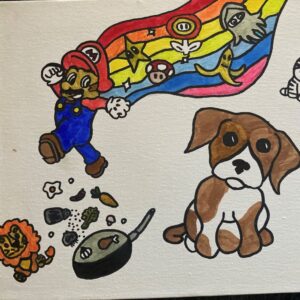At 49 years old, Jeremey found himself sleeping rough.
“Looking back, I think lots of things melded together over a long period and led to my
homelessness,” he explained.
Jeremey’s challenging childhood meant he faced adversity early on.
“I came from a broken home, my father left when I was six.
“I went to a different primary school every year of my life.
“I actually think homelessness, movement and that transient lifestyle was part of my life
from the outset.”
Jeremey’s life was further complicated.
He lives with a disability called spinocerebellar ataxia. This genetic disorder affects the nervous system. It often results in poor movement and coordination, difficulties with walking, speech, vision and fine motor skills.
Fast forward to 2019, the loving father of three found himself in a tragic downward spiral.
“I lost my business. And then my relationship with my partner broke up.
“I was getting increasingly sick and wasn’t talking to people.
“I didn’t look after my mental health.
“I started drinking instead of paying my bills. I just gave up on everything.”
Jeremey was exhausted.
“I’d always fought my way out of things but this time I was lost.”
After considering sleeping in his car, Jeremey decided to move into the bush as that would
be more comfortable for his dog, Brown Eyes.
“I didn’t know what else to do,” Jeremey said
“I thought I can’t be out on the streets with my dog.
“So, I ended up in the bush.”
Jeremey found himself sleeping rough deep in bushland in the central highlands of north-
western Victoria.
Knowing he could not survive long without shelter, Jeremey used $300 of his few remaining
savings to buy an old 1970s van.
“It wasn’t really a van. It wasn’t something you could go camping in,” he said.
“Slowly over time I made it more and more liveable.”
This van was to be Jeremey’s ‘home’ for 18 months.
It gave him a small but vital refuge from gruelling sub-zero temperatures and piercing, icy
winds.
“It was freezing,” he said
“The wind would just blow straight through the van.”
Then the Covid-19 pandemic struck.
“The isolation in the end got me, especially when Covid hit.
“I missed my kids ‘cos they’ve always been in my life, I don’t have a lot of friends, so my
life was my children.
“It got lonely, very lonely and I got sick of myself.”
Jeremey’s situation became increasingly dire.
Then one day a chance encounter with Uniting Ballarat’s outreach team marked the turning
point in this single father’s life.
“When Uniting came along and found me, they were looking for someone else,” Jeremey
said.
“And I just said, well look I’ve been out here for months and I haven’t got any money.”
Stacey, Team Leader at Uniting Ballarat’s Street 2 Home program, remembers that early
meeting.
“When we first met Jeremey, he had been rough sleeping for 18 months. He was out in the
bush,” Stacey says.
“His weight had dropped. His physical health had deteriorated. His appearance was sunken
because he couldn’t access fresh water or showers or basic hygiene and health needs.”
Jeremey’s homelessness had taken its toll but the Uniting team sensed an opportunity to
help foster a better life for him.
They began assisting him with finding a home. Most importantly of all, they gave him the
care and help he needed to reconnect with others.
“When the Street 2 Home team told me about a home in Creswick, I was excited,” he said.
“My caseworker told me that he’s got a home for me, he’ll help me furnish it.”
Jeremey recalls his first night in the new home.
“I slept in a bed.
“I hadn’t slept in a bed for over 18 months, it was lovely.
“I slept like a log.
“The Street 2 Home team even bought my dog a bed; she was pretty happy.”
A year later, and having turned his own life around, Jeremey was the perfect candidate to
join Uniting Ballarat’s Street 2 Home team.
“Now I work here, they can’t get rid of me,” Jeremey jokes.
“My role at Uniting is officially Street 2 Home Homeless Peer Support Worker, I’m extremely
proud of that.
“I have the most fulfilling job I’ve ever had in my life.
“And I love seeing people I work with everyday smile, it’s awesome.”
As someone who has experienced the heart-breaking reality of sleeping rough, Jeremey
sees homelessness on the rise. He knows more needs to be done.
“As a single parent, what I went through before would be 10 times worse now,” he said.
“I feel so much for low-income people, single parents, unemployed people, my goodness.
“How can they pay for rent on a Newstart allowance?
“There’s an element of unfairness in our society at the moment that we really need to
address. The way we live, it’s just not right.”
Yes, Jeremey fortuitously crossed paths with Uniting. But sadly another 116,000 people face
homelessness every night of the year.
Another 190,000 households are on the waiting list for social housing. And it can take up to
eight years for someone to be housed.
At Uniting, we are experiencing a 53% increase in demand for our services and we are
trying our best to help every person and family who has fallen on hard times.
However, we can’t do it alone.
You can support people across Victoria and Tasmania doing it tough this Christmas.
Donate now.
